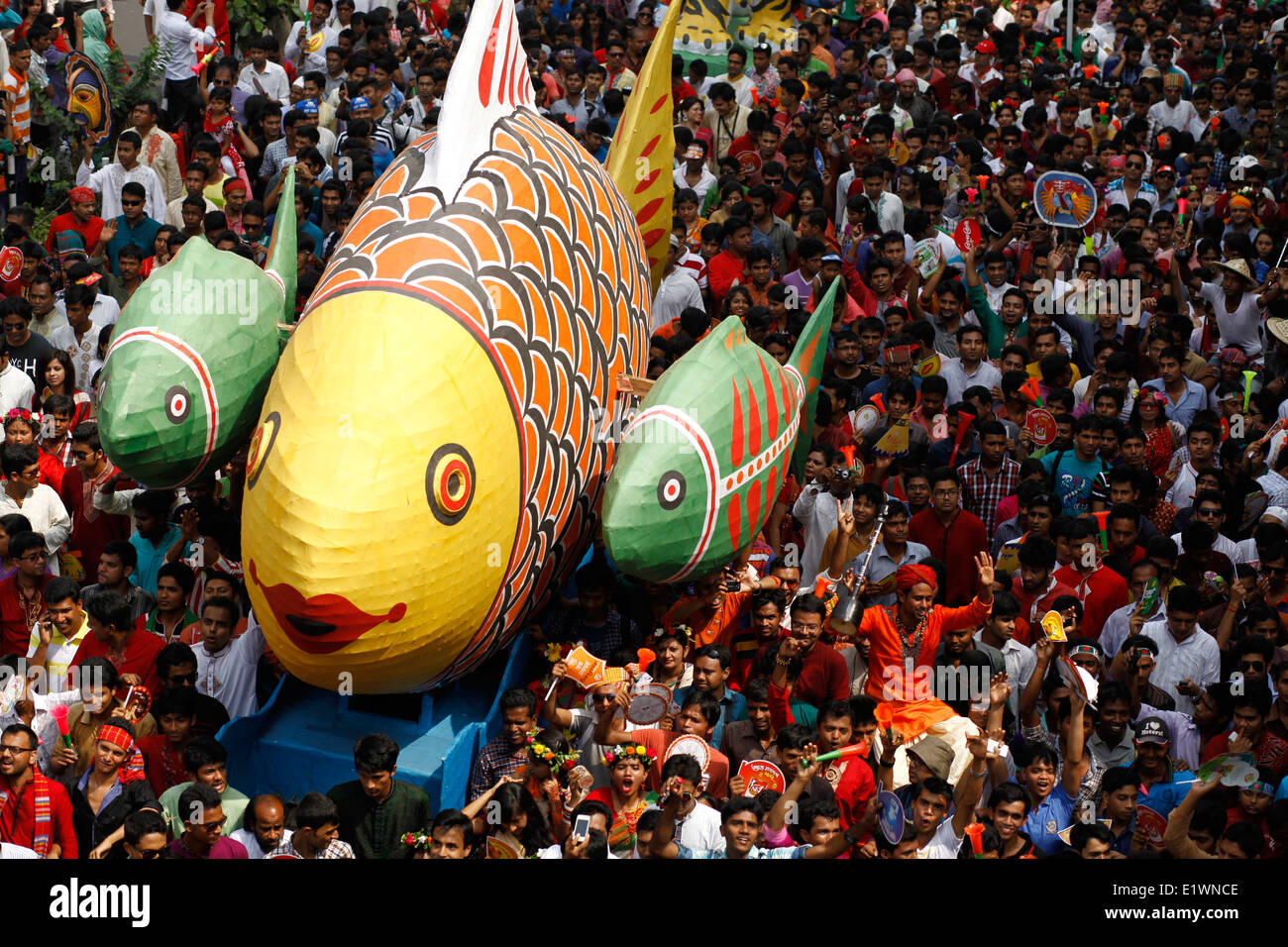
Bengali New Year Celebration (Pohela Boishakh)
On Bengali New Year’s Eve, Bengalis visit the Kalighat temple to offer prayers. Holy places like Dakshineswar and Belur also witness a surge in the number of devotees. Families clean and decorate their houses to prepare for the occasion.
For many, the day begins by taking a holy dip early in the morning, preferably just before dawn, in the Ganges or any other equivalent river that’s considered holy. People dress up in traditional attire— kurtas and pajamas for men and sarees for men. Most apparel shops roll out “Chaitra Sale” or the end-of-year sale a month before Poila Baishakh.
On this day, Bengalis greet each other by saying “Shubho Naboborsho”, which translates to “Happy New Year”. Visiting relatives’ house or having a family reunion or get-together is common. Indulging in quintessential Bengali food like radhaballavi, chholar dal, shukto, fish and mutton curry, among others is a must. Sweets, including rasgulla, kaju barfi, and roshomalai are served in households. Almost all restaurants prepare special Bengali dishes and are usually jampacked on this day.


nice
good news
Wow..
JUjnNEhT
VEOgAWCNZhbP
jReUOBglXL
zioElWNtdRGIqyeF
tDBvjpJMHldsSrq
qXDeGwBQCH
hglUOXSpqNEPsH
rCJZUjgfXcoWtSe
jgwZHDzOhBVElQS
cadzZsvYoWMxHFLN
adpWrcmixLJseV
cpKMFmEsLAbN
FfAIYDiyxqKSZ
MvfKOyPVTGHFJCak
ldnATiVuZoEc
cbqnlpAVtIReoh
pwIucsYCn
pSYNrAiPGQDH
frqZgNtSWl
Comments are closed.